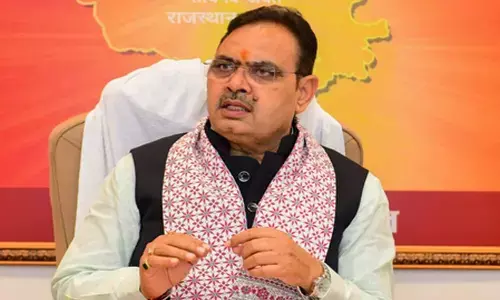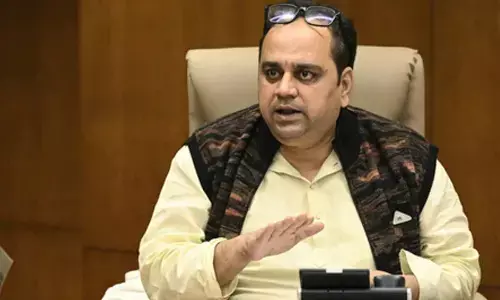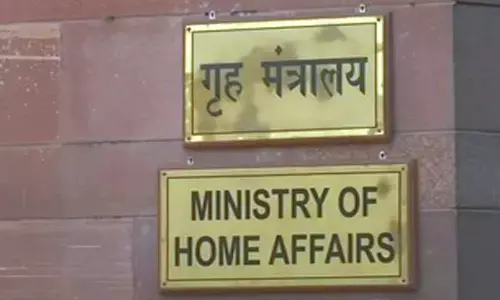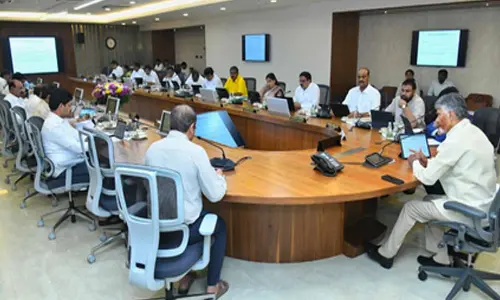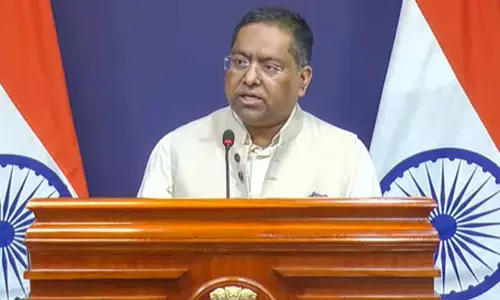Whither celebration of secularism?

Several anti-BJP outfits and self-proclaimed secular parties are quick to interpret the defeat of BJP in Bihar as a celebration of secularism. Like socialism in 1970s, secularism today has become a lucrative hat and whoever wears it is considered secular. But the fact remains is that these non-BJP parties were never consistently anti-BJP. Nitish Kumar is no exception.
.jpg) Several anti-BJP outfits and self-proclaimed secular parties are quick to interpret the defeat of BJP in Bihar as a celebration of secularism. Like socialism in 1970s, secularism today has become a lucrative hat and whoever wears it is considered secular.
Several anti-BJP outfits and self-proclaimed secular parties are quick to interpret the defeat of BJP in Bihar as a celebration of secularism. Like socialism in 1970s, secularism today has become a lucrative hat and whoever wears it is considered secular.
But the fact remains is that these non-BJP parties were never consistently anti-BJP. Nitish Kumar is no exception. Therefore, these parties cannot profess as secular even if secularism is erroneously and parochially defined as an anti-BJP political position alone.
The regional political parties like Janata Dal (United) or TDP etc., conveniently ignores the issue of secular thought when they share power with BJP and make loud ‘secular’ noises when they get disassociated with BJP.
Preservation of the secular character of Indian polity cannot be possible by just opposing BJP to ensure minority vote-bank. Secular polity cannot be preserved and promoted by minority appeasement and observing strategic silence over the unruly and undemocratic actions of minority fundamentalism. Secularism should be equally antagonistic to majority or minority fundamentalism, though the nation will face a much bigger danger if majority religion turns communal.
In fact, majority and minority fundamentalism breeds on each other’s growth. Therefore, secular parties which celebrate the defeat of BJP should also express jubilance over the Bihar’s rejection of MIM's attempts to enter the State, especially in the backdrop of its victories in Maharashtra and Uttar Pradesh.
The regional parties including JD(U) displayed opportunistic vacillation in shifting loyalties between Congress and BJP depending on politics of convenience rather than any concrete programmatic understanding. Secularism abhors religion-based political or electoral mobilisation but does not in any way sanction caste-based mobilisation which is equally reactionary, if not more.
Caste arithmetic cannot be defined as a secular alternative to communal politics. Glorification of Bihar’s mandate is oblivious to these political realities. In fact, the BJP's rise owes to a great extent to political pusillanimity of such secular forces and their politics of minority appeasement which the Sangh Parivar could effectively exploit.
These non-BJP regional parties have never conducted any public action in a sustained manner in defence of secular thought. They failed to present any radically different social or political or economic policy alternative to BJP. The real celebration of secularism is political and electoral mobilisation of masses on truly secular demands devoid of caste, creed or community. These values should be adhered to in every stage from selection of candidate, electioneering etc.
Secularism is not irreligious. Secularism does not aim at abolition of religion. But, secularism is delinking religion from State. Confining religion to personal life and divorcing it from public life is secularism. Secularism is not just tolerance or promoting every religion, they are only subset of secularism. Respect for plurality and diversity is integral to secularism but not its totality. Keeping religion from all aspects of Statecraft is true secularism. But such a scientific understanding of secularism is not possible by politics of prevarication.
Woman injured in stabbing attack in Tokyo, suspect at large
Bengal cop booked for murder over mysterious death of woman home guard, SIT to probe case
Staffer recalls horror of 7-kg gold robbery by armed gang in Karnataka’s Hunsur
25-Year-Old Airline Cabin Crew Member Dies At Gurugram Party; Police Begin Investigation








